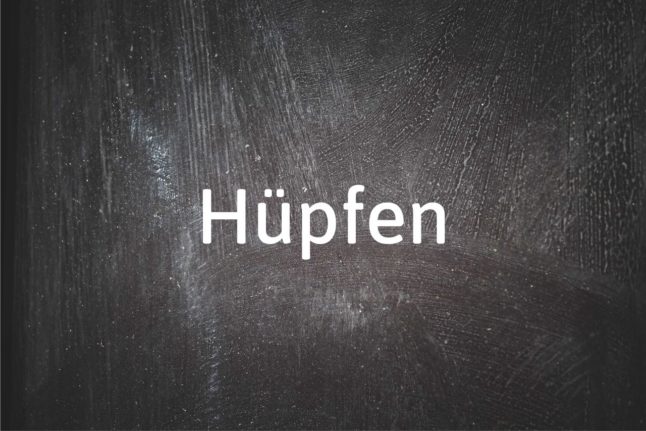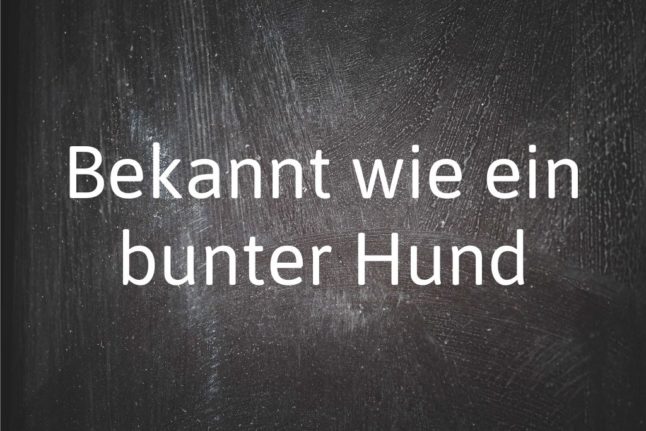Why do I need to know it?
This jovial German word almost always carries a positive connotation – and is especially fun to pronounce. If you’re in an area with a lot of children (or feeling particularly carefree and happy yourself) you’ll have ample opportunities to use it.
What does it mean?
Hüpfen – which is also sometimes written as hupfen in parts of Austria and southern Germany – is a very active verb. In English it could be translated as to hop, bounce, skip, leap or jump.
READ ALSO: Vienna vs Berlin: Which German-speaking city is better to live in?
It is commonly used among children at play: if you skip with a rope, you would mit dem Springseil hüpfen. Or they might attempt to mimic the message of the nursery rhyme Fünf kleine Äffchen hüpfen auf dem Bett (Five little monkeys jump on the bed).
It’s also enthusiastically expressed by anyone experiencing a moment of glee: if you jump for joy then you would vor Freude hüpfen. And if you’re describing animals – be it a bunny rabbit or gazelle – you would also use this verb to describe how they get around.
READ ALSO: EXPLAINED: What is the Austrian integration exam for non-EU nationals?
Some commonly used synonyms are springen and jumpen but hüpfen is a word – with its upbeat, almost lyrical pronunciation – that seems to embody the movement it describes.
Where does it come from?
The exact origin of the verb – as written with an umlaut – can be traced back to the late 1700s, according to the Grimm Brothers’ Dictionary of the German language. Older German literature, including texts from Goethe, used hupfen.
Both uses stem from the Middle and High German verb hoppen – which nowadays might sound like Denglish slang thrown around by teenagers, but whose use actually stretches back hundreds of years.
Examples of how it’s used:
Kannst du auf einem Bein hüpfen?
Can you jump on one leg?
Die Antilope hüpfte durch das Tal.
The antelope hopped through the valley.
Sie hüpfte vor Freude, als sie erfuhr, dass sie ihre lange verlorene Jugendliebe wiedersehen würde, die sie seit über 50 Jahren nicht mehr gesehen hatte.
She jumped for joy, when she learned that she would again see her long lost childhood sweetheart, who she had not seen in over 50 years.



 Please whitelist us to continue reading.
Please whitelist us to continue reading.
Member comments